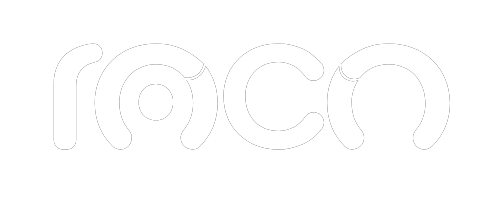In today’s digital world, where competition is fierce and visibility is everything, understanding and leveraging the importance of SEO has become a key factor for business success. If you’ve ever wondered why some brands consistently appear at the top of Google while others struggle to be seen, the answer lies in a well-executed SEO strategy.
In this article, we break down how SEO can transform your business's online presence, putting you ahead of the competition and taking you to the next level of success.
Understanding SEO: What is it and how does it work?
SEO, or Search Engine Optimization (Search Engine Optimization), is a set of strategies and techniques designed to improve the visibility of a website in the organic results of search engines like Google. SEO focuses on improving the relevance and authority of a web page so that search engines consider it as a reliable and high-quality source for users.
How does SEO work?
SEO is based on three fundamental pillars:
- On-Page SEO: This aspect refers to optimizing elements within your website, such as using relevant keywords, content quality, URL structure, image optimization, and improving site speed. All of this helps search engines better understand what your page is about and determine whether it is relevant to users' queries.
- Off-Page SEO: Here we are referring to all actions that are carried out outside of your website to improve its authority and relevance. This includes link building, which is links from other websites to yours. The more quality links pointing to your site, the more authority search engines perceive it to be, which can improve your rankings.
- Technical SEO: This pillar focuses on more technical aspects of the website, such as site structure, indexing, information architecture, and mobile friendliness. Good technical SEO ensures that search engines can crawl and understand your website efficiently.
In short, SEO is a combination of internal and external optimizations that, when implemented correctly, can significantly improve your website's visibility in search results, attracting more traffic and potentially generating more customers for your business.
SEO vs. Paid Advertising: What's the Difference?
In the world of digital marketing, both SEO and paid advertising are powerful tools for driving traffic to a website, but they work in very different ways and offer different benefits. Understanding the difference between the two can help you decide which is the best option for your business, or if a combination of both strategies is the key to success.
- SEO (Search Engine Optimization): SEO focuses on optimizing your website to appear organically in search results on search engines like Google. The goal of SEO is to improve your position in these results without paying for space.
- Paid Advertising (PPC): Paid advertising, commonly known as PPC (Pay Per Click), involves paying for space in search results or on other advertising platforms such as Google Ads. Paid ads appear at the top of search results, and advertisers pay each time a user clicks on their ad.
What is the best option for your company?
The choice between SEO and paid advertising depends on several factors, such as your budget, short- and long-term goals, and the nature of your business. SEO is ideal if you are looking for a sustainable, long-term strategy to increase your brand visibility, while PPC is perfect for getting quick results and capturing traffic immediately.
Many businesses opt for a combination of both strategies to maximize their results, using SEO to build a solid foundation and PPC to complement and accelerate growth.
Key Benefits of SEO for Businesses
Implementing an effective SEO strategy can radically transform a company’s online presence. Below are some of the key benefits that SEO can offer:
- Greater Visibility and Web Traffic: Being in the top results on Google means that more users will see your website, which in turn generates more traffic. But it's not just a matter of quantity; SEO helps attract users who are specifically interested in what you offer, i.e. quality traffic.
- Credibility and Trust: Users tend to trust organic search engine results more than paid ads. Appearing at the top not only gives you greater visibility, but also improves the perception of your brand as an authority in your sector.
- Better User Experience: By optimizing site speed, navigation, and content, you provide a better experience for visitors, which can reduce bounce rates and increase the time they spend on your site.
- Long Term Profitability: Although SEO takes time and effort, the results are long-lasting and can be more cost-effective in the long run compared to paid advertising. Once your website is well-ranked, you can enjoy a steady stream of organic traffic without the ongoing costs of ads. This makes SEO a smart investment for businesses looking for sustained growth.
- Competitive Advantage: By implementing strategies that others aren't taking advantage of, you can gain a significant advantage and capture a larger market share. Good SEO can make your business the preferred choice over the competition.
Key Components of an Effective SEO Strategy
SEO is a multifaceted discipline that requires a combination of tactics and approaches to be truly effective. Below, we explore the key components of an SEO strategy that can help you improve your website’s rankings and attract quality traffic.
- Keyword Research:
This process involves identifying the words and phrases that users use in search engines to find products, services, or information related to your business. Effective keyword research allows you to understand what your potential customers are searching for and how you can optimize your content to meet that demand.
- Content Optimization:
Content is king in SEO. For your website to be successful, you need to create high-quality content that is optimized for relevant keywords. This includes blogs, articles, product descriptions, and more. Content should be valuable, relevant, and address the needs of your users.
- Technical SEO:
As we mentioned earlier, technical SEO refers to optimizing the more technical aspects of your website to ensure that it is easily crawlable and indexable by search engines.
- Link Building:
Inbound links (backlinks) are an important signal to search engines about your website's authority and relevance. An effective link building strategy involves obtaining links from high-authority and high-relevance websites. These links act as votes of confidence, which can significantly improve your search engine rankings.
- Monitoring and Analysis:
SEO is not a static strategy; it requires ongoing monitoring and adjustments based on performance. Using analytics tools like Google Analytics and Google Search Console allows you to track traffic, conversions, and other key KPIs. With this data, you can identify what’s working and what needs improvement.
The Future of Your Business Depends on SEO
In a digital environment where competition is fiercer than ever, the difference between success and stagnation lies in your company’s visibility in search engines. SEO is not just an optional strategy; it is a necessity for any business that aspires to grow and thrive in the future. An SEO-optimized website not only puts you in front of potential customers, but it also establishes the credibility and trust your brand needs to stand out.
Don't let your business fall behind. Investing in SEO today is ensuring the growth and relevance of your business for years to come. Are you ready to take your visibility to the next level?
Click here for a free SEO audit and discover how we can help you optimize your website and position yourself ahead of the competition.




